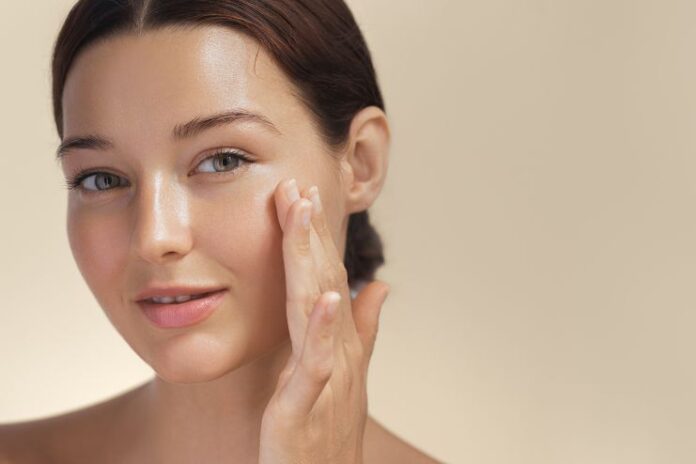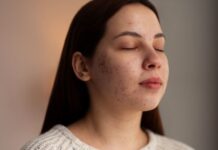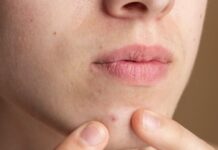Does your face become uncomfortably shiny before lunchtime? Do you struggle with breakouts caused by excess sebum? Don’t worry – you’re not alone! Oily skin is a common concern that often leads to various issues like acne breakouts, blocked pores, and uneven skin texture. Before turning to harsh chemical treatments, it’s important to understand what’s causing the problem.
Oily skin occurs when your sebaceous glands produce an abundance of sebum, the natural oil that keeps your skin healthy and moisturized. This overproduction can be triggered by various factors, including hormonal fluctuations, dietary choices, genetic predisposition, and even incorrect skincare routines. Interestingly, using aggressive cleansers or skipping moisturizer can actually worsen the condition by triggering your skin to produce even more oil as a defensive response.
Here’s the silver lining – you don’t need aggressive chemicals to restore your skin’s balance. Natural remedies can effectively control excess oil production while nurturing your skin, providing a healthy, matte appearance without compromising essential moisture. Let’s discover how!
Read More: Mud Therapy: Can Clay Heal Your Skin & Detox Your Body?
What is Oily Skin
Scientifically speaking, oily skin results from excessive sebum production that accumulates on the skin’s surface. Individuals with oily skin typically experience greasy patches returning shortly after cleansing their face. This constant oil buildup necessitates frequent washing, as otherwise, the face develops an unwanted shine that can be quite embarrassing.
While those with oily skin might not require regular moisturizing, sun protection remains crucial to prevent UV damage. Choosing non-comedogenic, oil-free sunscreen helps manage the condition while protecting against sun-induced blemishes and scarring.
Causes of Oily Skin
Several factors contribute to oily skin, with genetic predisposition and environmental conditions playing crucial roles. While some people might consider a luminous complexion desirable, excessive oiliness can be problematic. Here are the primary factors that lead to oily skin:
Environment: Climate significantly impacts sebum production. In hot, humid conditions, the skin tends to produce more sebum, leading to increased oiliness, particularly around the pores. Conversely, in arid environments, the skin may become dehydrated, prompting the oil glands to overcompensate by increasing sebum production.
Genetics: The tendency toward oily skin and heightened sebaceous gland activity often runs in families. If your relatives experience excessive oil production due to overactive sebaceous glands, there’s a high likelihood you’ve inherited this trait.
Age: While sebum production typically decreases with age, having naturally oily skin doesn’t automatically resolve over time. As skin ages, it loses collagen and vital proteins, causing sebaceous glands to become less active. This explains the prevalence of dry skin among older adults. While fine lines become more noticeable due to reduced collagen and sebum levels, individuals with oily skin often experience slower visible aging compared to those with drier skin types.
Poor Diet: Nutritional choices significantly impact sebum production. Consuming excessive junk food, spicy dishes, and oily meals can increase oil secretion, resulting in greasier skin.
Hormonal changes: Sebum production is closely tied to hormonal fluctuations. During significant life stages like puberty, pregnancy, and menopause, sebaceous glands become particularly active due to hormonal shifts, leading to increased skin oiliness.
Stress: Elevated stress levels trigger increased oil production through higher cortisol secretion, known as the stress hormone. Therefore, individuals prone to oily skin should prioritize stress management and relaxation techniques.
Inappropriate Skin Care Products: Using products unsuitable for your skin type can exacerbate oiliness. For example, those with combination skin might mistakenly use heavy moisturizers, thinking they have dry skin. Seasonal changes may require adjusting your skincare routine – switching to lighter moisturizers and gel-based cleansers during warmer months, while using more nourishing products during winter.
Larger Pores: Various factors, including aging, fluctuations in weight, and previous acne episodes, can contribute to pore enlargement. These expanded pores typically produce increased amounts of sebum. While it’s not possible to physically shrink pore size, you can manage oiliness by regularly blotting affected facial areas throughout the day.
Read More: Slugging vs. Skin Cycling: Which Skincare Trend Is Right for You?
How to Treat Oily Skin Naturally
1. Honey

Honey stands as one of nature’s most valuable skincare ingredients. Its natural antibacterial and antiseptic qualities make it particularly beneficial for oily and acne-prone skin types. As a natural humectant, honey provides hydration without adding excess oil. This unique property stems from its ability to draw moisture from the skin without introducing additional moisture.
For effective treatment of acne and oily skin, apply a thin layer of raw honey to your face. Allow it to remain for approximately ten minutes before thoroughly washing with lukewarm water.
2. Aloe Vera

Aloe vera is renowned for its healing properties, particularly in treating burns and various skin conditions. This versatile ingredient has been a staple in skincare formulations for generations. It’s particularly effective in addressing combination skin concerns, helping to balance areas of excessive oiliness while soothing dry, flaky patches.
Before retiring for the night, apply a thin layer of aloe vera gel to your face and leave it on until morning. However, it’s important to note that individuals with sensitive skin may experience adverse reactions to aloe vera. If you’re new to using this ingredient, conduct a patch test by applying a small amount to your forearm. Wait for 24 to 48 hours – if no irritation occurs, it should be safe for regular use.
Read More: DIY vs. Store-Bought Skincare: A Practical Guide to Choosing Wisely
3. Egg Whites
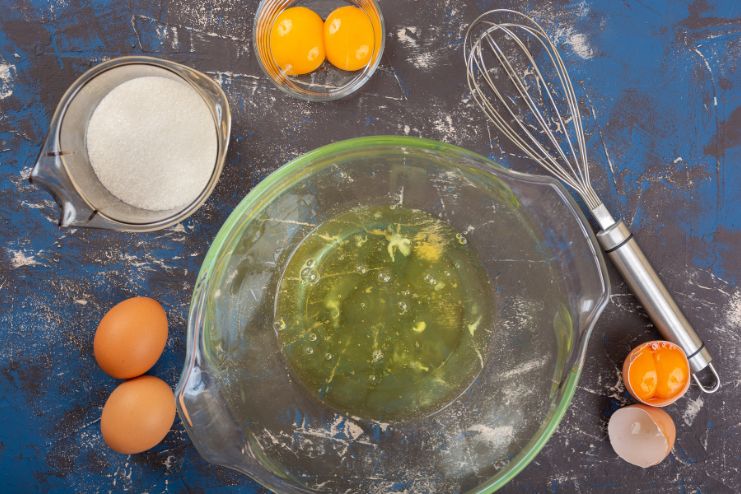
Rich in vitamin A, egg whites serve as an exceptional natural remedy for oily skin. They effectively minimize pore appearance, address blemishes, and enhance skin firmness.
For those without egg allergies, incorporating egg whites into your skincare routine is straightforward. Simply whip one egg white until it becomes firm, apply it evenly across your face, allow it to dry completely, then rinse thoroughly with warm water.
For enhanced benefits, create a powerful face mask by combining egg whites with fresh lemon juice. Lemon’s natural astringent properties complement the egg white by helping control excess oil production while simultaneously brightening your complexion.
4. Tomatoes

Tomatoes contain high levels of salicylic acid, a compound commonly found in commercial acne treatments, making them an excellent natural solution for managing oily skin. The natural acids present in tomatoes effectively absorb excess oil, unclog congested pores, and help prevent future breakouts.
To create a beneficial exfoliating mask, combine one teaspoon of granulated sugar with the pulp of a fresh tomato, then apply this mixture to your skin using gentle circular motions.
This application method allows the tomato’s natural astringent properties to work effectively while simultaneously helping to remove accumulated dead skin cells. Leave the mask on your face for approximately five minutes before thoroughly rinsing with lukewarm water and gently patting your skin dry. For a simpler alternative, you can directly apply fresh tomato slices or pulp to your skin.
5. Jojoba Oil
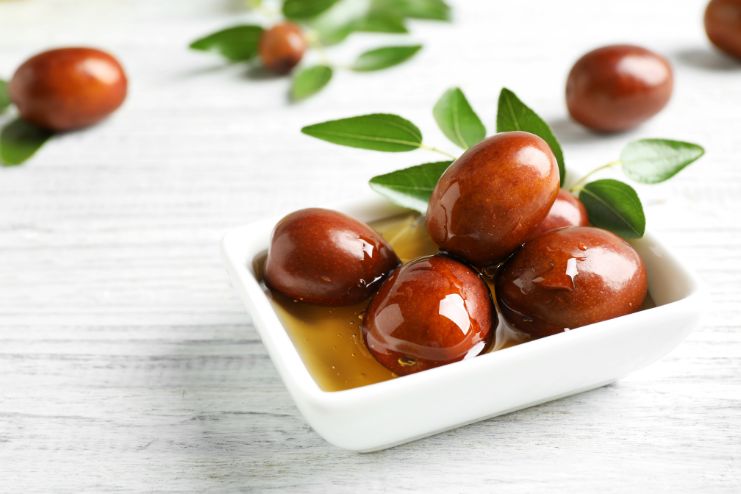
Despite common misconceptions about applying oil to oily skin, jojoba oil serves as an effective natural remedy for acne, excess sebum, and various skin concerns. Research suggests that jojoba oil’s molecular structure closely resembles human sebum, potentially signaling sebaceous glands to reduce their natural oil production, thus helping maintain optimal skin balance.
According to a 2024 study conducted using an organ culture model simulating human skin characteristics, jojoba oil demonstrated the ability to decrease certain oil secretions by approximately 30%.
To test its effectiveness, apply a few drops of jojoba oil to cleansed skin twice weekly and monitor the results. Remember that a minimal amount is sufficient. If you experience positive effects, consider incorporating it into your daily skincare routine.
Read More: How to Build a ‘Skinimalist’ Routine Without Sacrificing Results
6. Apple Cider Vinegar

Apple cider vinegar serves as a versatile natural skincare solution, particularly beneficial for oily skin types through its hydrating and toning properties. Its potent antimicrobial characteristics effectively cleanse pores and reduce excessive sebum production, helping to prevent unwanted breakouts.
Acting as a natural astringent, it effectively minimizes pore appearance while maintaining optimal skin pH levels, resulting in a refined and rejuvenated complexion. This natural toning solution effectively regulates sebum production, minimizes pore visibility, prevents acne formation, and revitalizes your skin.
To apply, simply saturate a cotton pad with the mixture and gently sweep across your face. Allow the solution to remain on your skin for approximately ten minutes before rinsing thoroughly with cool water. This gentle yet powerful treatment maintains your skin’s natural moisture equilibrium while effectively controlling oil production.
7. Almonds

Finely ground almonds function as a superior natural exfoliant. They effectively absorb excess oils and impurities while delicately removing dead skin cells, resulting in refreshed and purified skin. Their gentle yet thorough cleansing action unclogs pores and prevents breakouts while maintaining essential skin hydration.
To create a basic almond facial scrub, process raw almonds to yield approximately three teaspoons of fine powder. Combine this with two teaspoons of pure honey until a consistent paste forms, then apply using gentle circular movements across your face. After several minutes, rinse thoroughly with warm water and gently pat dry to reveal a natural radiance.
For an intensive treatment, process almonds into a smoother consistency and blend with honey to create a nourishing face mask. Apply the mixture evenly, allow it to remain for ten to fifteen minutes, then rinse thoroughly with warm water. This enriching mask provides the perfect natural solution for managing excess oil while simultaneously exfoliating and moisturizing the skin.
Read More: 10 Signs you’re not taking Care of Your Skin as You Age
8. Oatmeal

Oatmeal stands out as a gentle yet powerful solution for managing oily skin. Its natural properties excel at reducing inflammation, absorbing excess sebum, and gently removing dead skin cells.
When preparing oatmeal for facial applications, it’s typically ground into a fine consistency to create a smooth, skin-friendly texture. For enhanced benefits, combine it with natural ingredients such as plain yogurt, raw honey, or freshly mashed fruits like papaya, banana, or apple.
For a basic yet effective oatmeal face mask, combine ½ cup of finely ground oats with just enough hot water to form a paste. Add one tablespoon of pure honey to enhance its exfoliating and cleansing properties. Apply the mixture using gentle circular motions for approximately three minutes, then rinse thoroughly with lukewarm water and pat dry for refreshed, balanced skin.
9. Cosmetic Clay
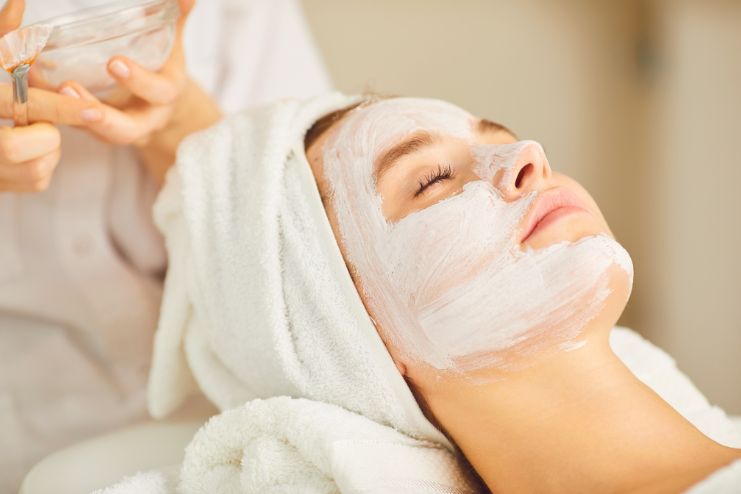
Cosmetic clays, also known as healing clays, offer exceptional natural solutions for oily skin management through their superior oil-absorbing and skin-purifying capabilities.
French green clay, particularly rich in beneficial minerals, stands out for its deep cleansing and detoxifying properties. This makes it an ideal choice for those dealing with oily or acne-prone skin, as it effectively draws out impurities, reduces shine, and helps prevent future breakouts.
Create a luxurious spa-like French green clay mask at home by blending one teaspoon of the clay with either rose water or filtered water until you achieve a smooth, pudding-like consistency. Once mixed, apply the paste evenly across your face and allow it to dry completely before thoroughly rinsing with comfortably warm water.
10. Bananas

Bananas serve as a natural skincare powerhouse, abundant in essential nutrients like potassium, which effectively hydrates and nourishes skin cells without contributing to excess oiliness. Rich in vitamins A, B, and E, these versatile fruits provide an excellent natural solution for maintaining balanced, supple skin while controlling oil production.
Create an effective facial scrub by thoroughly mashing a ripe banana and combining it with approximately one tablespoon of milk and two teaspoons of oats. Apply this mixture to freshly cleansed skin, gently massaging in circular motions for about five minutes to exfoliate dead skin cells and eliminate excess oil. Allow the scrub to remain on your skin for 20 minutes, enabling optimal nutrient absorption. Complete the treatment by rinsing with warm water.
This natural remedy effectively regulates oil production while leaving your skin feeling refreshed, nourished, and remarkably smooth.
Read More: 12 Ways To Use Castor Oil For Acne And Better Skin
When to See a Dermatologist?
While natural remedies often prove effective for managing oily skin, certain conditions necessitate professional medical intervention. Symptoms such as inflammatory or painful blemishes, excessive oil production leading to frequent breakouts, or persistent severe acne may indicate underlying skin conditions requiring medical attention.
Only qualified dermatologists can prescribe appropriate medications or develop specific skincare regimens for conditions like rosacea, seborrheic dermatitis, or hormonal acne. Professional consultation becomes essential when over-the-counter products and home remedies fail to show improvement after several weeks of use.
A dermatologist can accurately assess your skin type, identify potential triggers, and recommend personalized treatments targeting your specific concerns. Consulting a skincare specialist ensures access to evidence-based treatments that enhance skin health while preventing long-term damage.
Read More: Honey for Glowing Skin – 11 Tricks To Bring Out The Inner Glow
Conclusion
Managing oily skin doesn’t require investing in expensive treatments or harsh chemical products. Nature provides us with gentle yet powerful solutions, such as egg whites, tomatoes, oatmeal, and clay masks, that effectively reduce excess sebum, unclog pores, and nourish your skin.
These natural alternatives deliver multiple benefits beyond oil control, including proper hydration, gentle exfoliation, and prevention of acne breakouts. By incorporating these remedies into your daily skincare routine, you can achieve a balanced, radiant complexion without unnecessary skin irritation.
We encourage you to explore these natural solutions and discover which combinations work best for your unique skin type. Since skin responses vary significantly among individuals, testing different remedies helps identify the most effective treatment for your specific needs.
Have you tried any of these natural approaches yet? Which remedies yielded the best results for your skin? Share your journey and experiences in the comments below!
References
- https://www.medicalnewstoday.com/articles/321090#medical-treatment
- https://www.healthline.com/health/oily-skin-causes#products
- https://www.healthline.com/health/home-remedies-for-oily-skin#cosmetic-clay
- https://schoolofba.com/8-natural-remedies-for-oily-skin/
- https://www.cerave.com/skin-smarts/skincare-routines/a-gentle-skincare-routine-for-oily-skin
- https://www.aad.org/public/everyday-care/skin-care-basics/dry/oily-skin
In this Article















